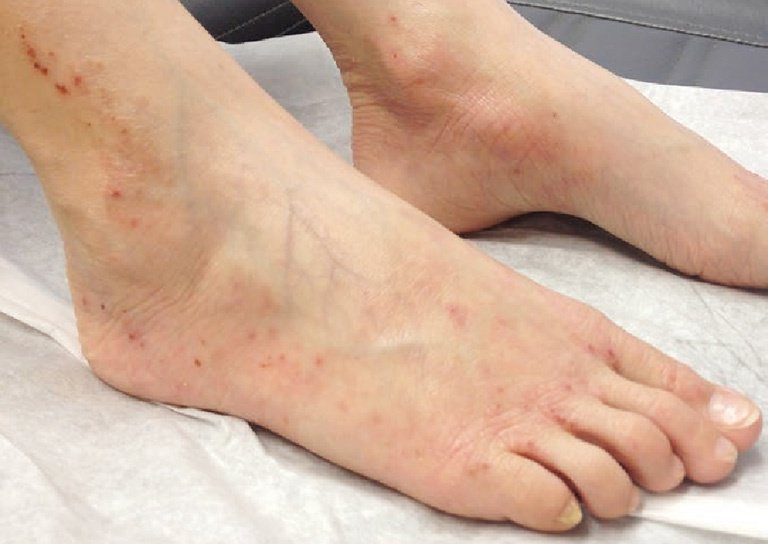Some dangerous sexually transmitted diseases
Worldwide, there are an estimated 250 million new cases of sexually transmitted diseases (STDs) each year. Most of these diseases can be transmitted directly or indirectly. However, for some common genital infections in women such as gonorrhea, syphilis, hepatitis B, etc., the main mode of transmission is not sexual intercourse.
Due to physical and endocrine characteristics, sexually transmitted diseases in women have no or very few symptoms, leading to delays in diagnosis, increased likelihood of infections and complications such as:
Ectopic pregnancy, miscarriage, stillbirth; Birth defects; Early rupture of membranes, premature birth; Congenital infection. The following information will help you understand more about some common dangerous diseases that are sexually transmitted:
Due to physical and endocrine characteristics, sexually transmitted diseases in women have no or very few symptoms, leading to delays in diagnosis, increased likelihood of infections and complications such as:
Ectopic pregnancy, miscarriage, stillbirth; Birth defects; Early rupture of membranes, premature birth; Congenital infection. The following information will help you understand more about some common dangerous diseases that are sexually transmitted:
1. Hepatitis B
Hepatitis B is spread through contact with blood and other body fluids, which can cause serious liver damage. Although there is no definitive cure, hepatitis B can be controlled by specific drugs or by vaccination. In the early stages, people with hepatitis B may have characteristic symptoms. such as: nausea, abdominal pain, dark urine, jaundice and often feeling tired. In more advanced stages, the patient already has a chronic infection that can lead to cirrhosis and liver cancer.

2. Genital warts (Human Papiloma Virus (HPV)
Many people mistakenly believe that genital warts are only spread during sex. However, this information is completely false. Because skin-to-skin contact is enough to spread HPV.
Some types of warts are harmless, but many also lead to cervical or anal cancer. Currently, there is no cure for HPV, the only way to protect yourself is to get vaccinated.

>> See also: Ureaplasma: one of the causative agents of sexually transmitted diseases - Article written by BSCKII Nguyen Thu Hoai - Department of Obstetrics and Gynecology, Vinmec Times City International General Hospital.
3. Scabies
For young people, scabies is often acquired through unprotected sex with red, itchy bumps on the skin.
Scabies can be treated with specific topical creams.

4. Gonorrhea
Painful urination, pus or increased discharge in "girls" are common symptoms when having gonorrhea for the first time or being infected for the first time. These symptoms are often confused with a urinary tract infection or a vaginal infection. In its later stages, gonorrhea can cause infection, a skin rash, or spread to the joints and blood.
Gonorrhea is a disease that can lead to infertility in both men and women. However, if detected early, antibiotic treatment can cure the disease.

5. Syphilis
Syphilis if not treated early can lead to paralysis, blindness, chronic transmission from mother to child causing birth defects, even death.
However, most people do not notice early symptoms of syphilis. The first signs are usually hard, round, painless nodules on the "girl" or anus. The disease is spread by direct contact with infected sores. Then there may be a rash on the palms, soles, or other parts of the body. Along with that are other symptoms such as fever, hair loss, fatigue. In the late stages, symptoms stem from damage to organs such as the heart, brain, liver, nerves, and eyes.

6. HIV
HIV is spread through unprotected sex, sharing needles, or being born to an infected mother.
The vast majority of people with HIV have no symptoms for many years. Some people have flu-like symptoms one to two months after infection: swollen glands, fever, headache, and fatigue; There can also be ulcers, pain in the mouth. Therefore, a blood test is the only way to detect the disease.

7. Some other common genital tract diseases
Genital herpes: causes ulcers, pain, cracks in the genitals or anus, thighs, buttocks. There is currently no cure, only drugs that control flare-ups. Chlamydia: causes itching and burning, discharge in the genitals, pain when urinating; can be treated with antibiotics at an early stage. Herpes Group 1: painful sores on the lips, easily spread through kissing. There is currently no cure, but flare-ups can be shortened or prevented with medication. Molluscum contagiosum: common in Asia and Africa, causes genital ulcers, treatable with antibiotics Pelvic inflammatory disease: serious complication of STIs, if left untreated Timely can cause infertility in women
8. How to prevent sexually transmitted diseases effectively
Say no to unprotected sex Monogamy Get a health check before having sex or when you suspect your partner has an illness Avoid sexual activity if your partner shows signs of illness Recognize symptoms and regular gynecological checkups Use condoms But be aware: Condoms are only effective in preventing the spread of certain diseases such as gonorrhea, chlamydia and HIV, and are less effective against herpes, syphilis and genital warts, especially scabies.
At Vinmec, a team of experienced and very psychological obstetricians and gynecologists, ready to listen to customers' thoughts, remove shyness and advise on the most appropriate treatment method for each patient. patient according to the disease.
At Vinmec, a team of experienced and very psychological obstetricians and gynecologists, ready to listen to customers' thoughts, remove shyness and advise on the most appropriate treatment method for each patient. patient according to the disease.
Để đặt lịch khám tại viện, Quý khách vui lòng bấm số HOTLINE hoặc đặt lịch trực tiếp TẠI ĐÂY. Tải và đặt lịch khám tự động trên ứng dụng MyVinmec để quản lý, theo dõi lịch và đặt hẹn mọi lúc mọi nơi ngay trên ứng dụng.
Bài viết này được viết cho người đọc tại Sài Gòn, Hà Nội, Hồ Chí Minh, Phú Quốc, Nha Trang, Hạ Long, Hải Phòng, Đà Nẵng.






